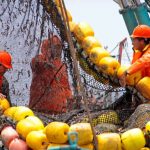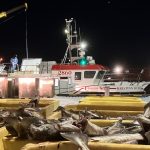Several of the experts convening in Iceland for a UN-affiliated conference marking the International Polar Year, agreed that a new co-ordinated international set of rules to govern commercial and research activities in both of Earth’s polar regions is urgently needed to reflect new environmental realities and to temper pressure building on these highly fragile ecosystems.
As the global warming increasing the ancient ice lid on the Arctic Ocean is fast disappearing, creating new opportunities for fishers and resource companies, and opening a potential new, far shorter ocean route between Europe and Asia, a prospect already drawing billions of dollars in investment in ice-class ships. Many experts believe this new rush to the polar regions is not manageable within existing international law, says A.H. Zakri, Director of the United Nations University’s Yokohama-based Institute of Advanced Studies (UNU-IAS).
Zakri also said that pressure on Earth’s unique and highly vulnerable polar areas is mounting quickly and an internationally-agreed set of rules built on new realities appears needed to many observers. It is told that in Iceland, leading scholars will detail fast-emerging issues in international law and policy in the polar region caused by such developments as the opening up of the Northwest Passage. These scholars will identify priorities for law-making and research and offer their best advice to decision makers, who clearly need to act even faster than the changing environment.
There is no doubt that Arctic sea routes are among the world’s most hazardous due to lack of natural light, extreme cold, moving ice floes, high wind and low visibility and the Arctic marine environment is particularly susceptible to the effects of pollution. The UN Convention on the Law of the Sea (UNCLOS), includes environmental rules inadequate to protect the ice oceans.








